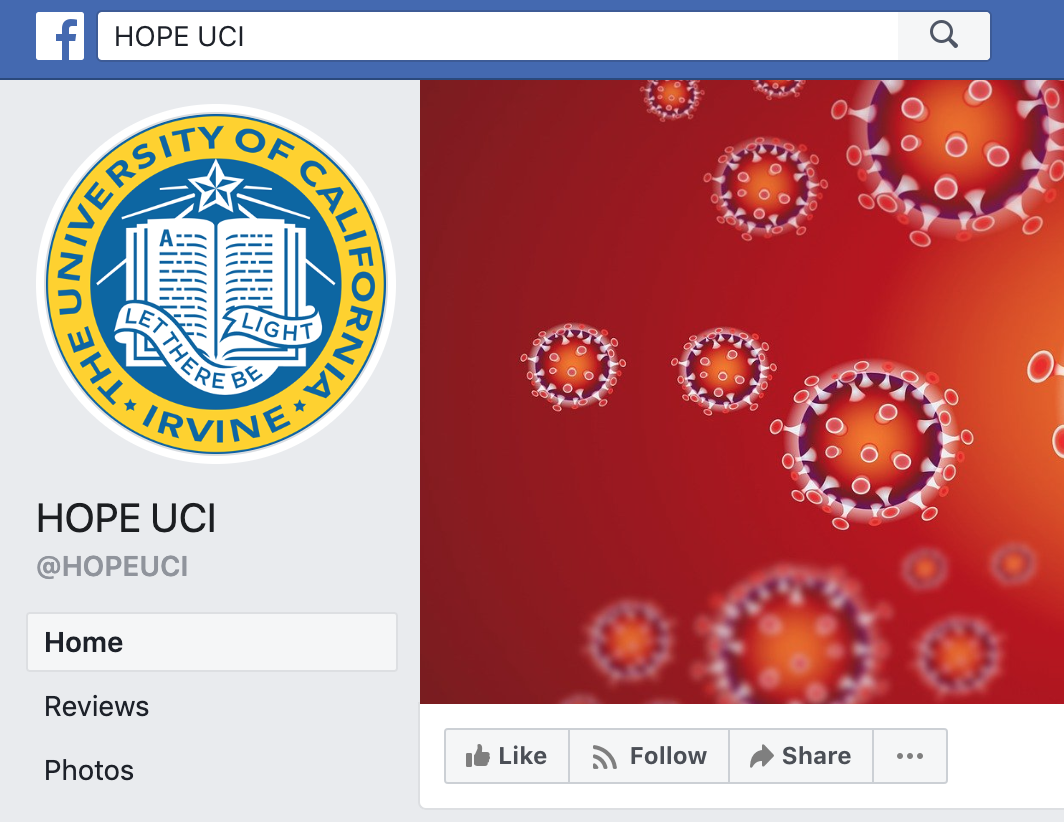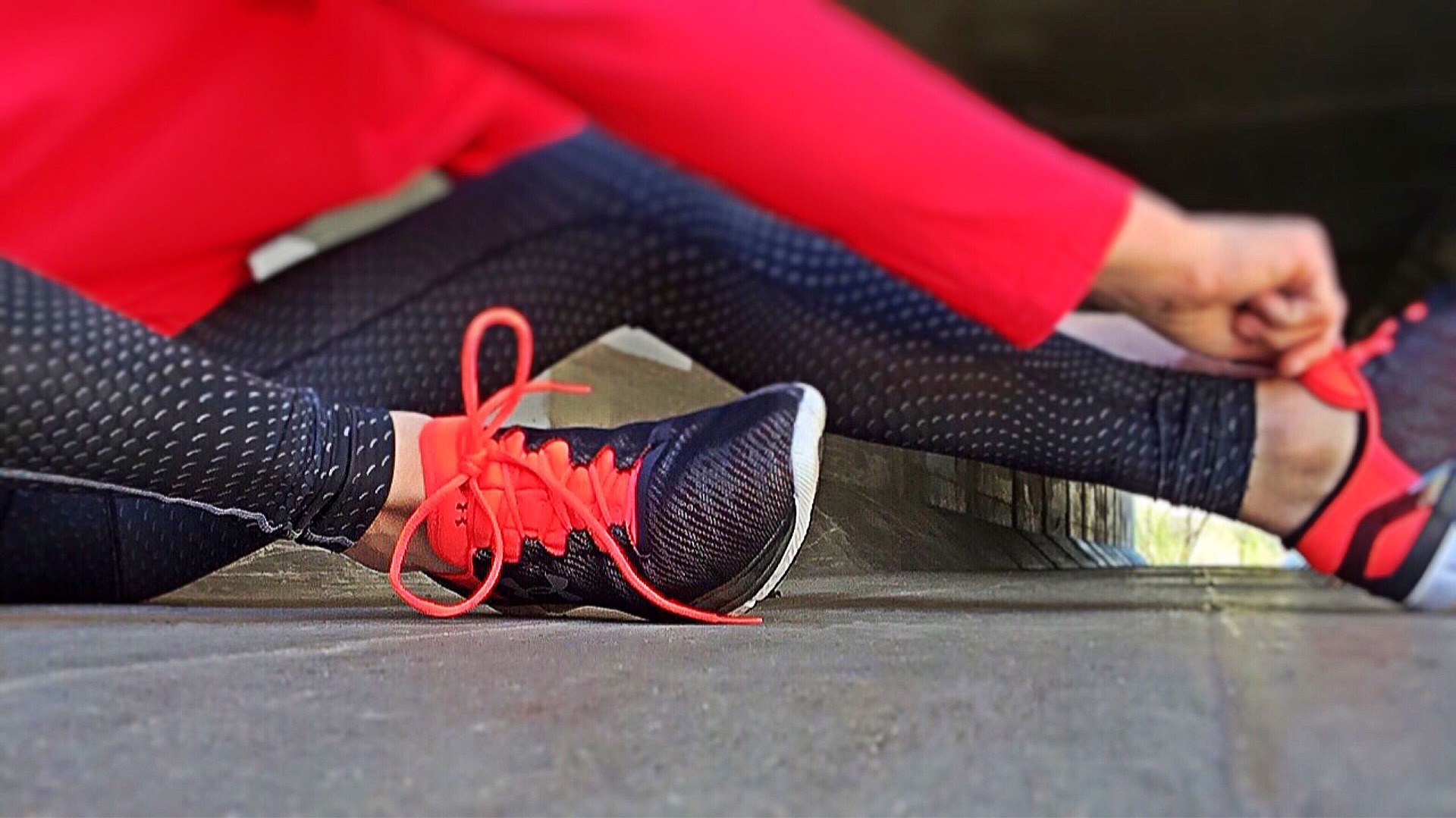More than 1.5 million people across the globe have been infected with Covid-19 since the outbreak began in the Hubei Province of China in December 2019. To date, the U.S. has diagnosed 424,000 cases of the virus; more than 150,000 in New York state, and 17,000 in California. There have been over 13,000 deaths in the U.S. due to the pandemic so far.
At the University of California Institute for Prediction Technology, we study how digital interventions can change human behaviors and outcomes. This month we started a research study assessing the anxiety that people are experiencing because of Covid-19 and whether digital interventions can help to prevent panic in the community.

The study utilizes Facebook groups to connect participants with peer leaders, and builds on previous work we have done using technology to assess the efficacy of digital interventions in HIV patients and those suffering from opioid use disorder.
The framework used for this type of research is HOPE – Harnessing Online Peer Education – and previous applications have shown that digital interventions and community building can decrease negative outcomes among participants. In the Covid-19 HOPE study, we hypothesize that regular contact and information on the Coronavirus provided by peer leaders on Facebook will reduce participant’s levels of anxiety and panic related to the outbreak.
This is an important issue to research and understand, as panic attacks — severe episodes of anxiety that come without warning — can have a detrimental impact on the choices we make and on our overall wellbeing.
Dr. Elissa Epel, a psychologist and Ph.D. at the University of California San Francisco who researches stress, states that “while some anxiety helps us cope, extreme anxiety can become coronavirus panic.” Epel notes that while in a state of panic “we are more likely to make mistakes and engage in irrational decisions and behavior.”
Having quantifiable research on pandemic-related anxiety will enable the development of tools to alleviate panic in the future. In the interim, we recommend using the following empirically-verified techniques to minimize anxiety:
Practice self-care
Create boundaries, eat well, get sufficient sleep, spend time outdoors, connect with a pet. There are numerous ways to practice self-care that lead to improved well-being and lower morbidity, mortality and healthcare costs. Humboldt University put out this ‘Self-Care Wellness Toolkit’ that suggests mindfulness, gratitude, and laughter among other techniques. These are things that can be accomplished at home while under self-isolation.
Meditation
UCI Health recommends meditation to help to counter depression and anxiety. Research shows that meditation also increases immune systems function, decreases pain and reduces cellular inflammation. Dr. Rimal Bera, a psychiatrist at UCI Health, advises that meditation can steer the mind into a parasympathetic response, and suggests complementary activities such as breathing exercises, yoga, tai chi, and qigong. Find a quiet place in your home to undertake these activities and prioritize them when scheduling your day.
Build Community
The Journal of Affective Disorders published a paper in 2016 confirming that seeking support from friends, family or others is an effective strategy for minimizing anxiety. The study also noted that it is beneficial for people to avoid isolating themselves and advised people to improve their interpersonal skills in addition to seeking social support. In this time of self-isolation, look to Facebook, Whatsapp and other social media platforms as resources to build community and share your experiences and feelings.

Exercise
A 2013 Frontiers in Psychiatry paper on the effects of physical activity on mental health states that exercise is associated with reduced anxiety in clinical settings. The paper further explains that “adults who engage in regular physical activity experience fewer depressive and anxiety symptoms” and that “exercise offers a protective effect against the development of mental disorders (van Minnen et al., 2010).” Many fitness experts are offering group classes for free on Instagram streaming, as well as through their individual websites. Set up an area in your home and allow yourself at least 20-minutes per session to give your body and mind the exercise it needs.
As the Covid-19 pandemic continues its spread throughout California and the rest of the nation in the coming weeks, we suggest that citizens work through anxiety that may come up by using the tools outlined above. Anxiety is an understandable response to this crisis in which so much is unknown, yet we must minimize panic in order to effectively transition into this new normal which may be with us for months to come.
